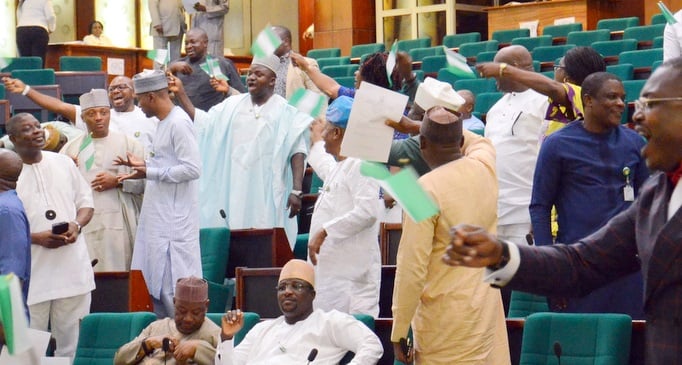THE House of Representatives has taken a bold step toward curbing the elite’s reliance on private and foreign services, as lawmakers on Tuesday passed for first reading a bill that seeks to ban public and civil servants, along with their families, from patronising private schools and healthcare facilities.
The proposed legislation, championed by Hon. Amobi Ogah (Isuikwuato/Umunneochi Federal Constituency, Abia State), is designed to compel government officials to exclusively use public institutions for education and healthcare.
According to the lawmaker, this would foster trust, reduce wasteful spending, and revamp crumbling public systems.
“Our public schools and hospitals are in a sorry state today because those in power abandoned them,” Ogah told journalists shortly after the plenary.
He lamented that top politicians, bureaucrats, and civil servants routinely send their children to expensive private or foreign schools, and travel abroad for medical treatments, leaving behind underfunded and neglected public institutions.
Ogah stressed that the bill aims to eliminate conflict of interest and promote integrity in governance, arguing that when leaders are compelled to use the same systems as ordinary citizens, they will be more inclined to improve them.
“This bill seeks to prohibit all public and civil servants including their immediate families from using private schools and health services,” he said. “We must restore the lost glory of our public institutions.”
Drawing from Nigeria’s post-colonial history, Ogah recalled how founding fathers such as Ahmadu Bello, Nnamdi Azikiwe, Tafawa Balewa, and Obafemi Awolowo were products of public and mission schools—institutions that were functional and respected at the time.
“Today, the reverse is the case. The elite have completely turned their backs on the institutions they swore to serve and uplift,” he said.
Ogah decried the billions of dollars Nigeria hemorrhages annually through medical and educational tourism. He revealed that between 2015 and 2023, Nigerians spent $29.29 billion on foreign medical treatments, largely during the Buhari administration.
He added that in just the first quarter of 2024, $38.17 million was spent on foreign education by Nigerians, with a total of $218.87 million spent in 2023 alone.
“This hemorrhage must stop. We can no longer pretend all is well,” he said. “Now that fuel subsidy is gone, it is only fair that those in public service also make sacrifices.”
Ogah argued that the culture of government officials living separate realities from the citizens must end.
“It does not speak well of a nation when its leaders cannot trust the systems they run. When presidents and ministers die in foreign hospitals, what message does that send to the world?” he asked.
The bill, still in its early stages, is likely to ignite intense debate when it reaches second reading. But Ogah insists it is time to walk the talk on patriotism, equity, and accountability.
“Let public officials feel the pinch. That’s how we will truly reform the system by using it ourselves,” he concluded.







